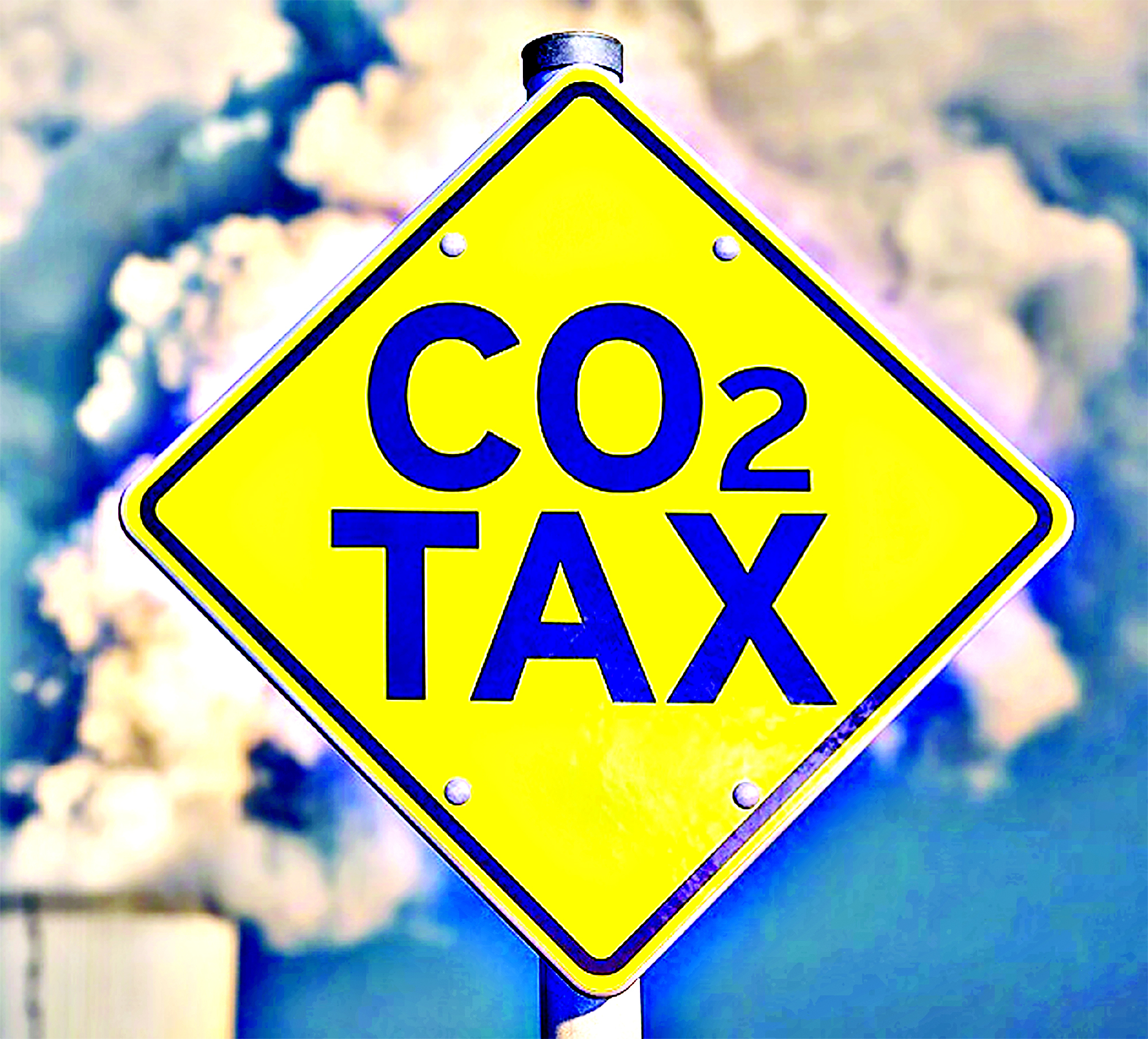…could push prices of steel, cement, and fertilizer sky-high

By Sifiso Sibandze
From the beginning of 2023, life got progressively more complicated for South African companies and others from the rest of the African region exporting energy-intensive products to the EU after the implementation of the Carbon Border Adjustment Mechanism, more commonly known as the “Carbon Tax.”
An EU border levy on climate-polluting imports aims to spur greener heavy industry – but could have costs for Africa. Battling to halve its planet-warming emissions by 2030, the European Union has imposed the world’s first carbon border tax on companies that import carbon-intensive products such as cement, steel and fertiliser.
This proposed import tariff aims to stop European firms from cutting emissions by simply transferring their polluting production outside the EU, to countries with lower environmental standards. It would not cover all products, instead targeting carbon-heavy goods.
This tax on EU imports is a powerful regulatory tool that will ultimately require importers to pay a levy on all carbon emissions associated with goods that they bring into the world’s second-largest market.
Following its implementation, importers need to document and report the CO2 footprints of imported electricity and materials such as steel, iron, aluminium, cement, and fertilizers. Chemicals, hydrogen and plastics may be included as well. Starting in around 2026, this task will get more challenging: importers will need to calculate and pay a levy on each metric ton of CO2 tied to those imports.
As the new tax system unfolds, compliance will only get more complicated. Importers will ultimately be responsible for documenting and paying for the carbon footprints not just of iron bars and bags of cement but of finished goods, including complex products such as cars and industrial machinery.
That means accounting for all components, the materials used to make those components, the mines they were extracted from, and the fuel used in shipping. In other words, they’ll be on the hook for the carbon footprints of all their suppliers and their suppliers’ suppliers, everywhere in the world.
But critics say putting a carbon price on imports could have unintended consequences, such as crippling trade with emerging and less-developed economies in Africa and in turn stifling their ability to cut emissions.
On the South African front, E27 billion a year of the Republic’s exports are at risk after the EU introduced the CBAM. It will impact South Africa’s steel, aluminium, iron, cement, fertiliser, electricity and hydrogen exports.
A policy brief by South African think-tank, Trade & Industrial Policy Strategies said that iron and steel exports face significant risk, as about 26 per cent in value of products that are included in the CBAM are exported to the EU.
Iron and steel exports covered the CBAM account for 4.0 per cent of South Africa’s total exports in 2021. Commentators have observed that South Africa will likely face tariffs as its heavy reliance on coal-based power generation makes it one of the largest carbon-intensive exporters to the EU.
Read More: African leaders ‘plead poverty’ at COP27
This will reduce the value of the nation’s future exports and the country’s competitiveness. Goods from developing and less-developed countries account for over 0.1 per cent of EU imports. Other countries that would be impacted include African nations such as Mozambique, Ghana, Cameroon, Zimbabwe, Zambia and Nigeria.
Mozambique, where 60 per cent of people live below the poverty line, sends more than half of its steel and aluminium exports to the EU. According to the Centre for Global Development think-tank, if a carbon border tax is slapped on those exports, the country could lose 1.6 per cent of its gross domestic product (GDP).
Based on that Eswatini is one of the countries that rank high in access to clean fuels and technologies as reported by the World Bank with a score of 74.7 per cent, the Kingdom’s exports to the EU, will not be hampered by the Carbon Tax. Eswatini exports mostly sugar and citrus products to the EU. And given the fact that Eswatini products are not carbon-intensive, commentators have observed that exporters will elude the carbon levy.
However, Economic expert Thembinkosi Dube did not rule out the possibility of the country’s products, mostly sugar being impacted by the Carbon Tax should the country eventually constructs its thermal power plant. In the Speech from the Throne, His Majesty King Mswati III ordered the government to pursue the construction of the thermal power plant, given the abundance of coal deposits in the country.
His Majesty the King stressed that such needs to be done while taking into consideration minimising the impact of emissions on the environment using technological advancements as in some developed countries.
Notwithstanding that the country would not be affected by the EU Carbon Tax, Dube observed that it would trigger an increase in the prices of cement, steel and fertilizer in the African region as the companies would be trying to recover the losses they would incur when exporting to the EU.
“Companies are all about making profits whether by hook or crook. Following the introduction of the Carbon Tax, importers will divert their exports to the African region because they have weak environmental legislation but they will come at a high cost,” Dube said.






